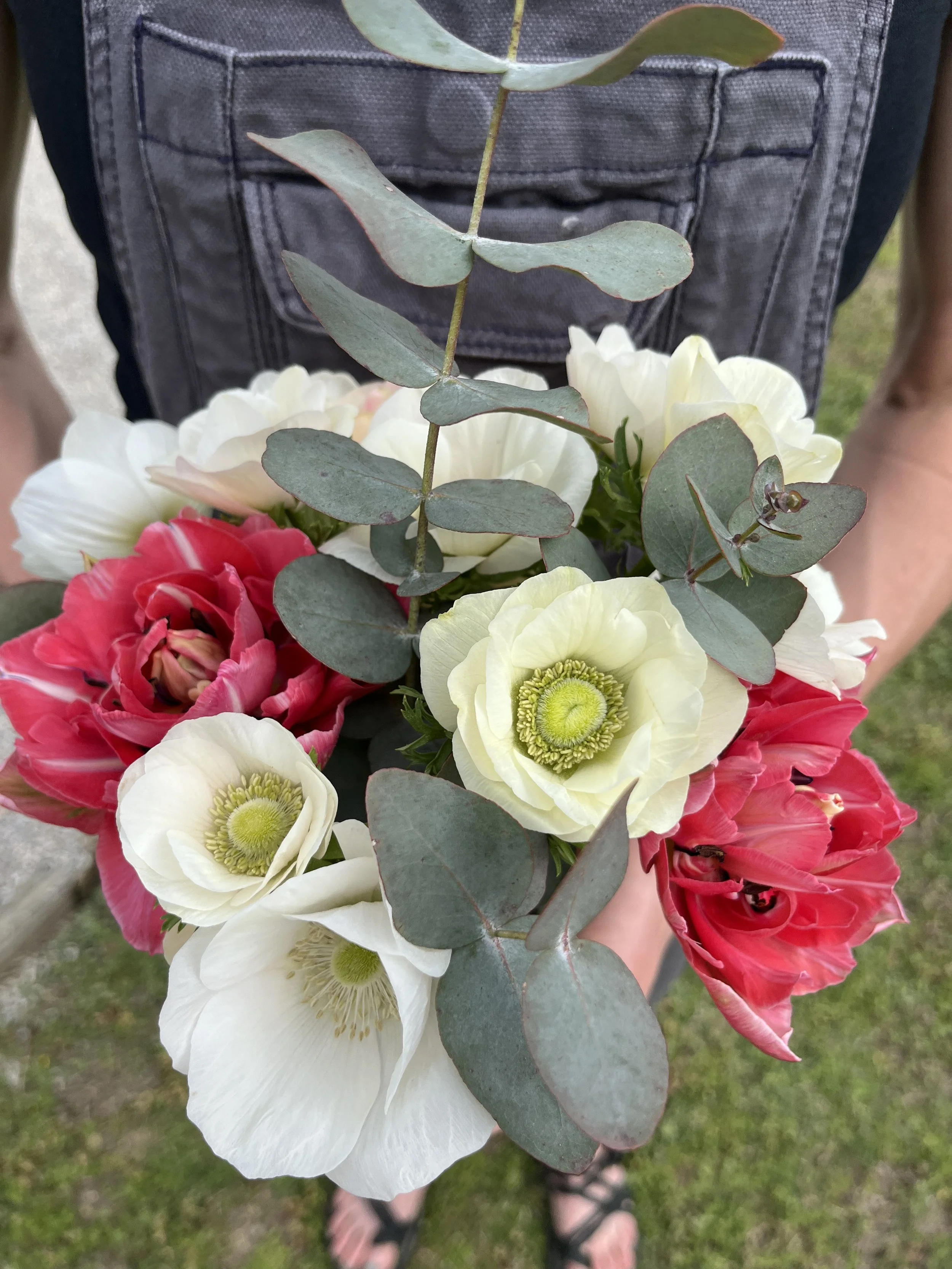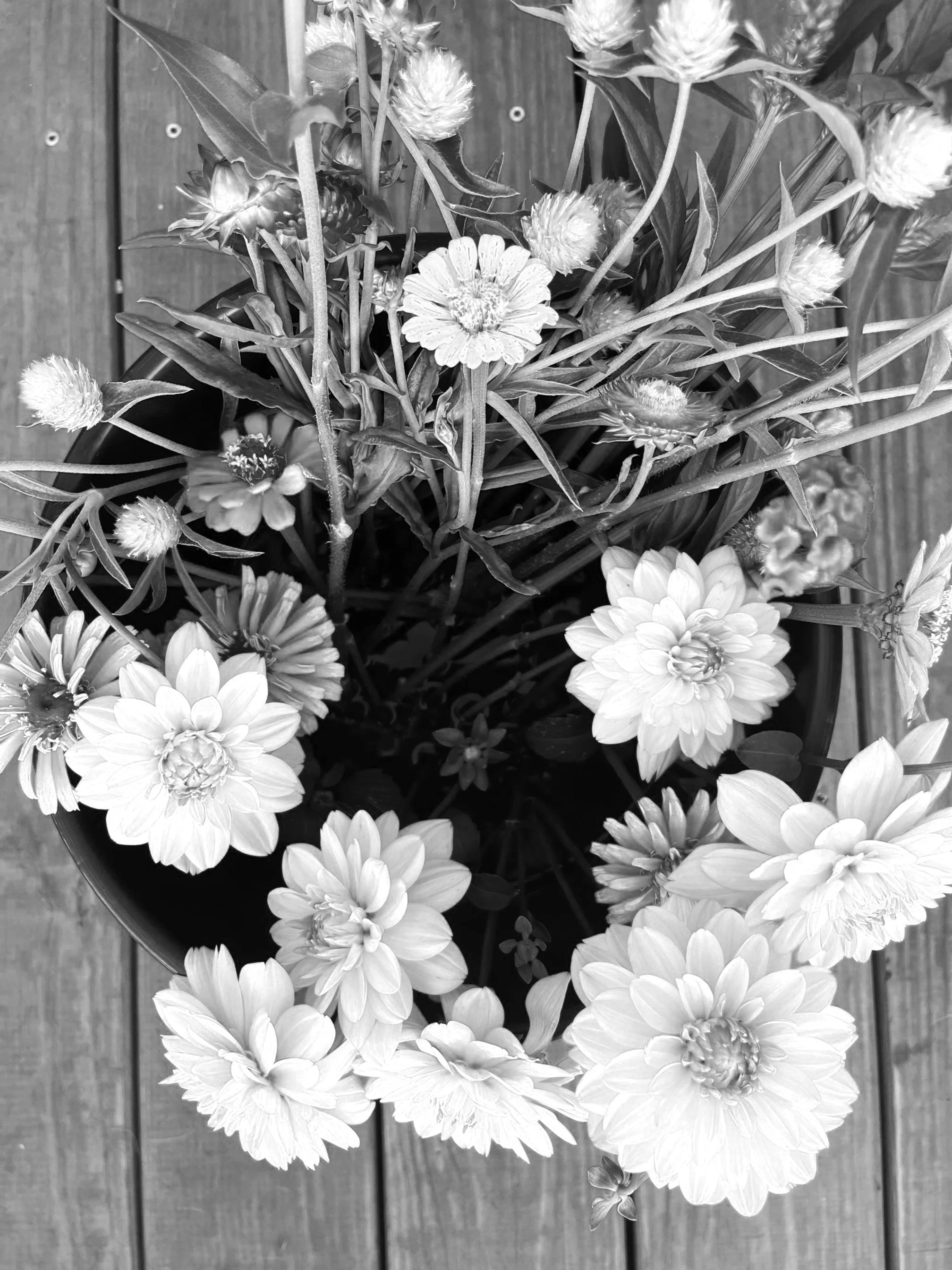Flower Farm Beginnings
My sweet husband, two beautiful daughters and I bought our current property a little over 3 years, hoping for a little slice of earth to breathe, on the outskirts of the rapidly expanding city of Raleigh, NC. Shortly thereafter we started designing our garden space. Running low on cash but still wanting to get our hands in the dirt, we made a haphazard attempt to turn what originally appeared to be a burn pile bordered by concrete blocks into a small, raised bed. Unfortunately, we quickly realized that to grow anything past a few leaves we needed a serious deer fence. One large deer fence, 11 raised beds, and many wheelbarrows of compost and mulch later we had our first true garden space. We busied ourselves with the fulfilling work of growing many fruits and veggies. The project became our family’s safe space, my husband called it his therapy and my daughters became keen on observing carrots for signs of shouldering, picking (and eating) pounds of fresh blackberries, and oohing and awing over all the beautiful pollinators. Each planting cycle I would show my husband our planting plans and he would often do a double take and ask how many vegetable beds I had turned into flower beds. What started as a whimsical wildflower patch primarily geared toward enhancing our pollinator population (and to appease my love of flowers) quickly expanded to half, then two thirds, then almost all of our beds filled with exquisite cut flowers. Flowers have always spoken a language to me that surpass all words. Their beauty, peace, sense of wild and wonder bring a connection with nature that is unparalleled. Our garden, which has now transformed into a micro-farm, and is still expanding, has become a place of unmatched peace and connection for me. I am so happy to share that what initially begun as a wagon (or battery powered jeep) filled with bouquets for neighbors has become a specialty-cut flower farm to share flowers with our community through Piece of Wild Flower Farm.
Our Farm
While although we are not certified organic, we try to use natural fertilizers and organic pesticides. We believe that the Earth is an important part of our process and our responsibility, so we are also implementing sustainable and regenerative farming practices. Finally, we support local farming and small business models.


